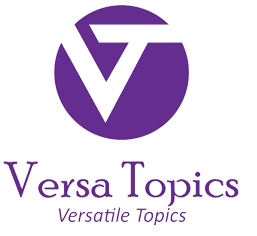Introduction
In today’s dynamic business environment, choosing the right software solutions is crucial for success. From managing projects to enhancing customer relationships, the right software can streamline operations and drive growth. This guide will explore the top 10 software solutions available, highlighting their features and benefits. Whether you’re a small business or a large enterprise, these recommendations will help you find the perfect fit for your needs.

Credit : Vlada Karpovich
Understanding Software Solutions
Software solutions are designed to address various business needs, helping to automate processes, manage operations, and analyze data. They come in many forms, each tailored to different aspects of business management. Choosing the right software solution can significantly impact your business’s efficiency and growth.

Criteria for Choosing the Right Software
When selecting software for your business, consider the following factors:
1. Functionality
The software should meet your needs and provide the necessary features for your operations.
2. Usability
Look for user-friendly software that requires minimal training for your team to use effectively.
3. Cost
Consider the initial investment and ongoing costs, including additional upgrades or support fees.
4. Support
Reliable customer support is essential for troubleshooting and ensuring smooth operation.
5. Scalability
Choose software that can grow with your business, offering additional features or capabilities as needed.

Top 10 Software Solutions
Here are the top 10 software solutions that can benefit various aspects of your business operations:
1. Project Management Tools
Project management tools help you plan, track, and manage projects effectively. They offer task management, time tracking, and team collaboration features.
2. Customer Relationship Management (CRM) Systems
CRM systems are essential for managing customer interactions, tracking sales, and improving customer service. They help businesses build better relationships with their clients.
3. Enterprise Resource Planning (ERP) Software
ERP software integrates various business processes, such as finance, HR, and supply chain management, into a single system. It’s ideal for large organizations that need comprehensive management solutions.

4. Accounting Software
Accounting software simplifies financial management tasks, including invoicing, expense tracking, and financial reporting. It’s crucial for maintaining accurate and efficient financial records.
5. Human Resources (HR) Management Systems
HR management systems streamline employee information, payroll, benefits, and recruitment tasks. They help manage and optimize your human resources operations.
6. Marketing Automation Platforms
Marketing automation platforms enable businesses to automate marketing tasks such as email campaigns, social media management, and lead generation, enhancing marketing efficiency and effectiveness.
7. Data Analytics Solutions
Data analytics solutions provide tools for analyzing and interpreting data to make informed business decisions. They often include features like data visualization and reporting.

8. Collaboration Tools
Collaboration tools facilitate teamwork and communication within organizations. They offer features for document sharing, project coordination, and real-time collaboration.
9. Security Software
Security software protects your business from cyber threats by offering antivirus protection, firewalls, and data encryption. It’s essential for safeguarding sensitive information.
- Find the Best Security Software
10. E-commerce Platforms
E-commerce platforms allow businesses to manage online sales, inventory, and customer transactions. They are crucial for businesses looking to establish or expand their online presence.
Avoiding Common Pitfalls
1. Overlooking Long-Term Costs
When evaluating software solutions, consider the total cost of ownership, including ongoing maintenance, upgrades, and support.
2. Failing to Plan for Scalability
Choose software that can adapt to your business’s growth, ensuring it can handle increased demands and additional features.
3. Neglecting User Training
Ensure adequate training and support are available to help your team use the new software effectively.
Conclusion
The right software solution is crucial for enhancing business operations and achieving growth. By exploring the top 10 software solutions highlighted in this guide and considering the key factors in your decision-making process, you can find the best tools to meet your business needs.

FAQs
1. How do I choose the best software solution for my business?
Evaluate the software based on functionality, usability, cost, support, and scalability to ensure it meets your specific needs.
2. Are there free software options available?
Yes, many software solutions offer free versions or trials, though they may have limited features compared to paid versions.
3. Can software solutions integrate with my existing systems?
Most software solutions offer integration options with existing systems to ensure seamless operations.
4. What should I consider when comparing different software solutions?
Consider features, user reviews, cost, support, and how well the software fits your business needs.
5. How can I get started with a new software solution?
Visit the software provider’s website to explore options, sign up for a trial, or request a consultation.








